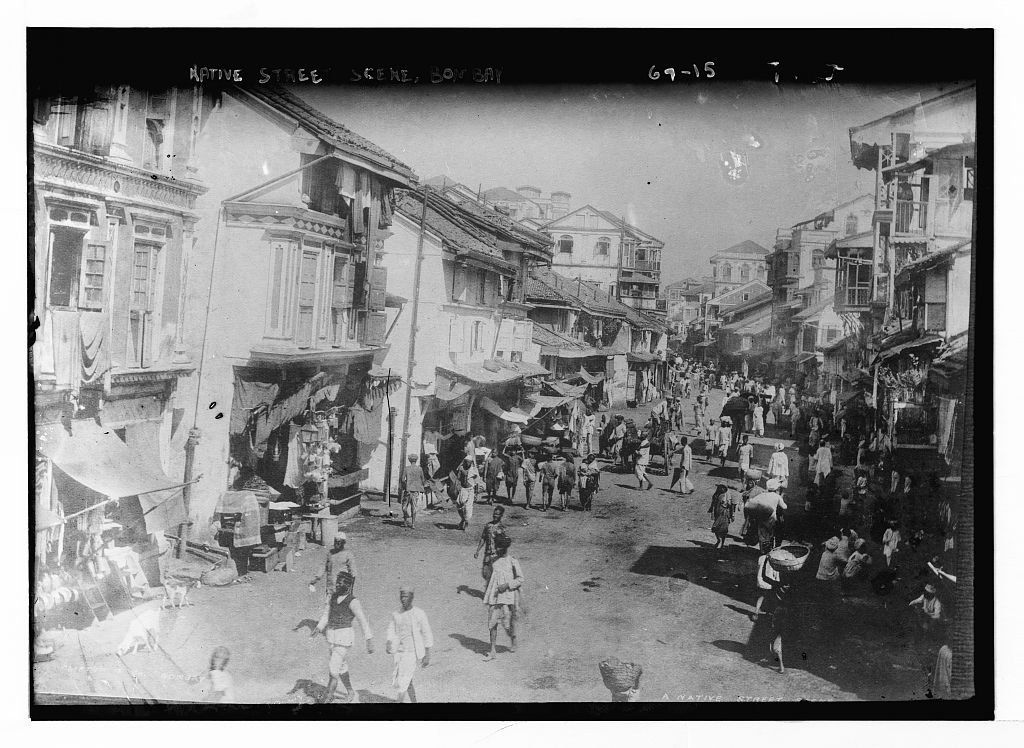
Streets of Bombay. Early 20th century.
Library of Congress (loc.gov)The Indian Sepoy Rebellion of 1857 (now also called the First War of Indian Independence) caused a major stir in Russian society. The main reaction of Russian government to this event was the desire to open a diplomatic mission in India as quickly as possible.
The formal basis for this was a trade agreement signed between Britain and Russia, after the Crimean War in 1856, which expressly provided for such a possibility. In 1858, therefore, Russia sent the British government a request to open a consulate in Bombay. The request was sent through the Russian embassy in London.
As expected, the British accepted the Russian initiative without the slightest enthusiasm. The Government of British India did not need an independent witness to its activity in the enslaved and devastated country, where a national liberation movement was gaining strength.
Henry Palmerston, a former British foreign minister who spearheaded the “Great Game” in Central Asia, became the prime minister of Britain at the time. He was still convinced that the strengthening of ties between Russia and India would lead to new uprisings of the Indians against the British colonialists.
However, the British could not deny outright Russia’s right to open a consulate in Bombay. So they searched for ways to delay the matter, resorting to unprecedented diplomatic red tape. As a result of repeated British efforts to renege on their promises, the procedure of establishing the first Russian Consulate in India lasted for an unprecedented period - more than 40 years!
London first sought Russian permission to open a British Consulate in Tiflis (present Tbilisi) “as a quid pro quo”. Russia agreed, and the British opened a consulate in the Caucasus. However, the British kept delaying giving permission to Russia to open the diplomatic mission in India!
After countless written and verbal reminders, demarches and demands from St. Petersburg, the British government then declared its readiness to close the British Consulate in Tbilisi.
Russia's diplomatic efforts to establish a consulate in Bombay became more active after a report from a Russian officer Alexander Vygornitskiy who, in 1887, travelled to India to study Hindi. In his report to the General Staff he noted that consulates of almost all the leading European powers were functioning in India, except the Russian one.
Vygornitsky’s first report was taken up for discussion by the Russian government, and later, in the Chancellory of the Russian Emperor. After that, Russian Emperor Alexander III personally took control of the issue of establishing the consulate in Bombay.
His successor, Nicholas II also showed great personal interest in setting up the consulate in Bombay. “I attach great importance to the question of consulates in major Indian cities,” he wrote in his diary in 1897.
Meanwhile in Europe, Germany was rapidly gaining strength, gradually beginning to displace Britain from the world's major markets. The British urgently needed an ally to suppress this new threat, and they finally decided to give way to Russia on the issue of opening consulates in India.
On August 21, 1899, British Foreign Secretary Lord Salisbury informed the Russian Ambassador in London that, “Her Majesty's Government is ready to meet the wishes of the Russian government concerning the consul’s appointments in Bombay.”
Vassiliy von Klemm became the first Russian Consul in India, a military diplomat, who served in Bukhara, Tashkent and Ashgabat for many years.
Upon learning of the terminal assignment, Lord Curzon, the Viceroy of India, began to bombard London with hysterical telegrams, in which he wrote: “The Russian consul who was appointed is an expert on Central Asia, is well known to me and, of course, he was sent to Bombay, not in order to engage only in commerce.” So even before he arrived in Mumbai, it was clear that the Russian Consul would have to work in difficult conditions.
The first Russian consul in Bombay did not manage to ensure the expansion of Russian-Indian relations in the field of economy, trade, culture and science. However, von Klemm played host to Bal Gangadhar Tilak, the outstanding leader of the Indian national liberation movement, and met with the heads of Indian principalities and established contacts with the Indian press.
The result of his work was the spread of truthful information about Russia in India, and spread of the news about India in Russia, which opened up new opportunities for contacts between the two countries.
All rights reserved by Rossiyskaya Gazeta.
Subscribe
to our newsletter!
Get the week's best stories straight to your inbox